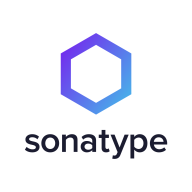

Black Duck and Sonatype Repository Firewall are competing products in the domain of software composition analysis and open source security. Sonatype Repository Firewall has the upper hand in feature set due to its proactive risk prevention approach.
Features: Black Duck provides comprehensive vulnerability management, open-source license tracking, and detailed reports on vulnerabilities. Sonatype Repository Firewall offers proactive risk prevention by blocking risky components, provides preemptive security measures, and focuses on maintaining secure repositories. Sonatype's emphasis on prevention offers a slight advantage.
Ease of Deployment and Customer Service: Black Duck offers flexible deployment with on-premise and cloud solutions backed by a strong customer service framework. Sonatype Repository Firewall emphasizes seamless integration into existing workflows with a cloud-first strategy and reliable support, leading to a slightly better integration within existing ecosystems.
Pricing and ROI: Black Duck is noted for competitive initial setup costs with tangible ROI by efficiently identifying and managing vulnerabilities. Sonatype Repository Firewall commands a higher initial investment but justifies costs with preventive security measures that potentially reduce long-term risk and associated costs. While Black Duck appeals to cost-conscious buyers, Sonatype's preventive approach may offer superior financial benefits over time.


Organizations use Black Duck for compliance, internal audits, license management, and security, scanning software to identify vulnerabilities, non-compliant code, and dependencies in open-source projects.
Black Duck integrates into CI/CD pipelines and DevSecOps processes, helping multiple industries detect and handle risks associated with open-source usage. Users leverage it for source and binary analysis to ensure security and compliance before software release. Automatic component analysis, effective vulnerability scanning, and a comprehensive knowledge base are some of its valuable features. Despite needing improvements in scanning speed, UI, and documentation, Black Duck remains crucial for ensuring open-source security and compliance.
What are Black Duck's most important features?
What benefits or ROI should users look for in reviews?
Black Duck is implemented by industries ranging from finance to healthcare, addressing security and compliance in open-source usage. Financial institutions employ it to manage license risks and ensure audit readiness. Healthcare organizations use it to comply with stringent data protection regulations, ensuring patient data security and privacy. Tech companies integrate Black Duck within CI/CD pipelines to maintain the security and compliance of software products before release. Its deployment varies, tailored to meet the specific risk management and compliance needs dictated by each sector's regulatory environment.
Sonatype Repository Firewall is a cloud-based security solution designed to safeguard your software supply chain against malicious components. It operates by meticulously scanning and evaluating each new component against customized governance policies, thereby effectively identifying and blocking potential threats before they infiltrate your development pipeline. What sets Sonatype Repository Firewall apart is its user-friendly setup, seamless integration with existing workflows, and remarkable scalability, making it suitable for software development environments of any size. Key features include blocking malicious components through behavioral analysis, malware scanning, and vulnerability assessment, as well as the ability to enforce custom governance policies. By utilizing this tool, organizations can enhance their software supply chain security, mitigate risks related to supply chain attacks, bolster compliance with industry standards, and ultimately reduce costs associated with security incidents.
We monitor all Software Composition Analysis (SCA) reviews to prevent fraudulent reviews and keep review quality high. We do not post reviews by company employees or direct competitors. We validate each review for authenticity via cross-reference with LinkedIn, and personal follow-up with the reviewer when necessary.